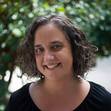Pam Laricchia's Blog, page 19
June 17, 2020
EU097 RECAST: Unschooling and Diversity with Erika Davis-Pitre
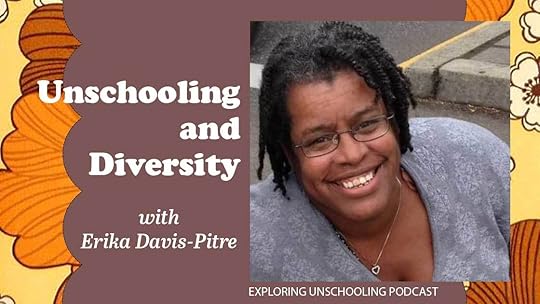
This episode was first shared in November of 2017, and I want to share it again now as the Black Lives Matter movement gains important momentum to bring Erika’s valuable experience and insights about diversity and racism through the lens of unschooling back into our conversations.
Erika and her husband, Michael have four adult children—they unschooled for many years and loved it. She has spoken at many unschooling conferences over the years and in our conversation we talk about the value of digging into our fears around race and privilege, ways to bring more diversity into our unschooling lives, having challenging conversations with extended family members, and so much more. Erika also shares her favourite anti-racist story: a supermarket encounter she had with a curious 3 year-old boy and his mom.
As Erika mentions, these are uncomfortable conversations. Yet, as we’ve discovered on our unschooling journey, we learn so many incredibly valuable things—especially about ourselves—when we take the time to sit with our discomfort, rather than pushing it away. I encourage you to sit with your discomfort and explore what bubbles up for you.
And when I asked Erika’s permission to re-broadcast this episode, not only did she say yes, she offered to come on the podcast again to continue the conversation. If, after listening to this episode, you have questions for Erika, please share them in the comments and we’ll do our best to address them in our upcoming conversation.
Questions for Erika
Can you share with us a bit about you and your family?
What did your family’s move to unschooling look like?
I heard you speak at an unschooling conference earlier this year about unschooling and diversity and really enjoyed it. You shared some very enlightening stories about the subtle impact of privilege in our society. Can you share one with us?
As we move to unschooling, we learn the value of digging into our own fears and questioning conventional wisdom in many areas of our lives. For example, our fears around learning—that our children won’t learn if we don’t tell them what they need to know, or if we don’t insist that they follow a certain timetable. We eventually discover that we truly can trust them to learn—that they are born to learn—and our world opens up. Can we can apply this same process to our fears surrounding race and diversity?
Can you share some ways in which we can be more welcoming to families from the wide variety of backgrounds that exist in the unschooling community?
Do you have some tips on approaching these kinds of challenging conversations around diversity with extended family members?
Links to things mentioned in the show
Erika on Facebook, and the FB group she moderates, Unschooling
Episode transcript
June 10, 2020
EU230: Unschooling in Context with Anna Brown
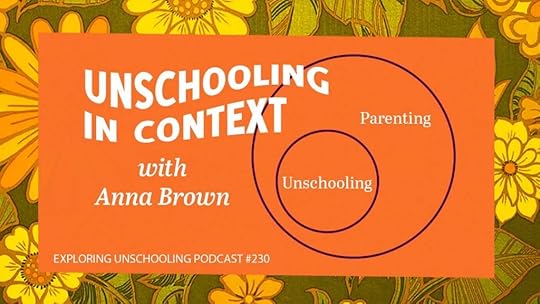
The idea with the unschooling in context episodes is to deepen our understanding of unschooling by exploring it in the context of other, related things. In this episode, we dive into unschooling in the context of parenting and examine some of the paradigm shifts around parenting and parent/child relationships that are integral to helping unschooling thrive in our families.
I had to think about it a bit to choose how I wanted to represent the relationship between parenting and unschooling in the diagram. I chose a big circle to represent parenting, and then a smaller, fully enclosed circle to represent unschooling. Because, of course, there is parenting that exists outside of unschooling, yet, once we commit to unschooling and discover what a pivotal role our relationships play in learning, unschooling and parenting become one and the same.
Topics we cover
Parenting doesn’t need to be adults vs children: from control to connectionConnected and trusting relationships are keyChildren are capable of making choicesExploring boundaries and comfort zones
Things mentioned in the episode
The Gardener and the Carpenter: What the New Science of Child Development Tells Us About the Relationship Between Parents and Children by Alison Gopnik
Attachment across the Lifecourse by David Howe
Escape From Childhood: The Needs and Rights of Children by John Holt
Episode transcript
June 3, 2020
EU229: From Control to Connection
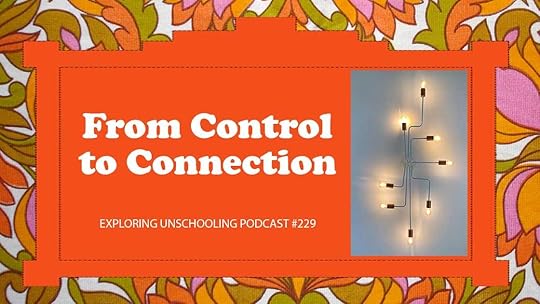
This week, I’ve put together a compilation episode! This time, the lens is on parenting and the shift away from control and toward connection and engagement with our kids. I think you’ll get a lot out of this deep dive.
Audio clips taken from these episodes …
EU027: Ten Questions with Teresa Graham Brett
EU084: Enjoy Parenting with Scott Noelle
EU111: Ten Questions with Jan Fortune
EU113: Deschooling with Megan Valnes
EU186: Sparkle and Zest and Unschooling with Teresa Hess
EU202: Unschooling and Connected Relationships with Liza Swale
Episode transcript …
Credits …
Photo by Fabio Bracht on Unsplash
May 27, 2020
EU002 RECAST: Ten Questions with Pam Sorooshian
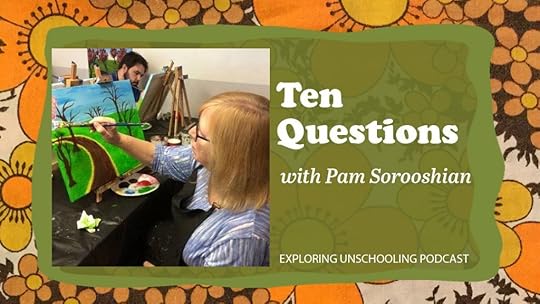
Pam Sorooshian is a veteran unschooling mom of three now adult daughters. Originally broadcast as the second episode of the podcast, I wanted to bring this gem back into the light!
In our conversation, Pam shares so many incredible insights from her experience. She talks about the early years of unschooling, tips on navigating sibling conflicts and reluctant spouses, how she worked through her bias against TV by exploring her husband’s love for it, and we also dive into her well-known essay, ‘Economics of Restricting TV Watching of Children,’ about the law of diminishing marginal utility.
In prepping to re-share this episode, I found some notes I made a while ago when I was reading the book Scarcity: Why Having Too Little Means So Much about how it wove together so clearly with Pam’s essay. Here’s a quote from the book, written by Sendhil Mullainathan and Eldar Shafir:
“Scarcity is not just a physical constraint. It is also a mindset. When scarcity captures our attention, it changes how we think—whether it is at the level of milliseconds, hours, or days and weeks. By staying top of mind, it affects what we notice, how we weigh our choices, how we deliberate, and ultimately what we decide and how we behave. When we function under scarcity, we represent, manage, and deal with problems differently.”
It’s really fascinating stuff! The scarcity mindset can effect everyone—not just children, and not just around TV watching. But it is a great example, and one that often comes up in unschooling circles.
Even if you’ve listened to this episode in the past, I strongly encourage you to listen in again. I suspect you’ll find yourself making all sorts of cool connections and maybe even gaining some new insights and ideas.
Enjoy!!
Ten Questions for Pam
1. Jumping back a few years, how did you first hear about unschooling and what spurred you to begin exploring unschooling with your family?
2. Let’s talk a bit about what learning looks like with unschooling. When one of your children was actively pursuing an interest, what are some of the things you did to support their exploration? And how did you weave together pursuing the interests of all three children?
3. One of the wonderful things about unschooling is the time we spend together. We get to know each other very well, strengthening our family’s connections and relationships, and part of that process, especially with siblings, is figuring out ways to move through moments when they are frustrated and angry with each other. When your children were younger, how did you help them move through conflicts?
4. I understand that your husband was a bit wary of unschooling for a few years, as was mine. How did you approach that?
5. One of the topics that regularly trips up newcomers to unschooling is TV watching. I’ve always loved your clear explanation of how restricting TV actually causes children to become more strongly attracted to it, the opposite of what the parent is trying to accomplish. Can you take us through that?
6. As an economics and statistics professor, you are pretty comfortable with math, but it’s an area that can be challenging for some people to figure out as they explore unschooling, especially since school has mostly boiled math down to worksheets. I have two questions for you about math. The first is, can you talk about how you see learning math through unschooling?
7. The second question is, can you suggest, especially for parents who are feeling a bit math phobic, some activities can they do with their children?
8. You’ve been actively involved with Homeschool Association of California’s annual conference for many years. What are some the benefits of going to a conference that you’ve seen for newer unschooling families?
9. All three of your daughters chose to go to college, and you see lots of schooled kids in your college classes. Have you seen any advantages in college from growing up unschooling?
10. Looking back now, what, for you, has been the most valuable outcome from choosing unschooling?
Links to things mentioned in the show
Pam’s blog: learninghappens.wordpress.com
Pam’s classic piece: ‘Economics of Restricting TV Watching of Children‘
Read more about Pam’s daughters’ college experience: sandradodd.com/college
You can find Pam participating in discussions in these Facebook groups: Radical Unschooling Info and Unschooling Mom2Mom.
Episode transcript
RECAST: Ten Questions with Pam Sorooshian

Pam Sorooshian is a veteran unschooling mom of three now adult daughters. Originally broadcast as the second episode of the podcast, I wanted to bring this gem back into the light!
In our conversation, Pam shares so many incredible insights from her experience. She talks about the early years of unschooling, tips on navigating sibling conflicts and reluctant spouses, how she worked through her bias against TV by exploring her husband’s love for it, and we also dive into her well-known essay, ‘Economics of Restricting TV Watching of Children,’ about the law of diminishing marginal utility.
In prepping to re-share this episode, I found some notes I made a while ago when I was reading the book Scarcity: Why Having Too Little Means So Much about how it wove together so clearly with Pam’s essay. Here’s a quote from the book, written by Sendhil Mullainathan and Eldar Shafir:
“Scarcity is not just a physical constraint. It is also a mindset. When scarcity captures our attention, it changes how we think—whether it is at the level of milliseconds, hours, or days and weeks. By staying top of mind, it affects what we notice, how we weigh our choices, how we deliberate, and ultimately what we decide and how we behave. When we function under scarcity, we represent, manage, and deal with problems differently.”
It’s really fascinating stuff! The scarcity mindset can effect everyone—not just children, and not just around TV watching. But it is a great example, and one that often comes up in unschooling circles.
Even if you’ve listened to this episode in the past, I strongly encourage you to listen in again. I suspect you’ll find yourself making all sorts of cool connections and maybe even gaining some new insights and ideas.
Enjoy!!
Ten Questions for Pam
1. Jumping back a few years, how did you first hear about unschooling and what spurred you to begin exploring unschooling with your family?
2. Let’s talk a bit about what learning looks like with unschooling. When one of your children was actively pursuing an interest, what are some of the things you did to support their exploration? And how did you weave together pursuing the interests of all three children?
3. One of the wonderful things about unschooling is the time we spend together. We get to know each other very well, strengthening our family’s connections and relationships, and part of that process, especially with siblings, is figuring out ways to move through moments when they are frustrated and angry with each other. When your children were younger, how did you help them move through conflicts?
4. I understand that your husband was a bit wary of unschooling for a few years, as was mine. How did you approach that?
5. One of the topics that regularly trips up newcomers to unschooling is TV watching. I’ve always loved your clear explanation of how restricting TV actually causes children to become more strongly attracted to it, the opposite of what the parent is trying to accomplish. Can you take us through that?
6. As an economics and statistics professor, you are pretty comfortable with math, but it’s an area that can be challenging for some people to figure out as they explore unschooling, especially since school has mostly boiled math down to worksheets. I have two questions for you about math. The first is, can you talk about how you see learning math through unschooling?
7. The second question is, can you suggest, especially for parents who are feeling a bit math phobic, some activities can they do with their children?
8. You’ve been actively involved with Homeschool Association of California’s annual conference for many years. What are some the benefits of going to a conference that you’ve seen for newer unschooling families?
9. All three of your daughters chose to go to college, and you see lots of schooled kids in your college classes. Have you seen any advantages in college from growing up unschooling?
10. Looking back now, what, for you, has been the most valuable outcome from choosing unschooling?
Links to things mentioned in the show
Pam’s blog: learninghappens.wordpress.com
Pam’s classic piece: ‘Economics of Restricting TV Watching of Children‘
Read more about Pam’s daughters’ college experience: sandradodd.com/college
You can find Pam participating in discussions in these Facebook groups: Radical Unschooling Info and Unschooling Mom2Mom.
Episode transcript
May 20, 2020
EU228: Free to Learn, Part Three
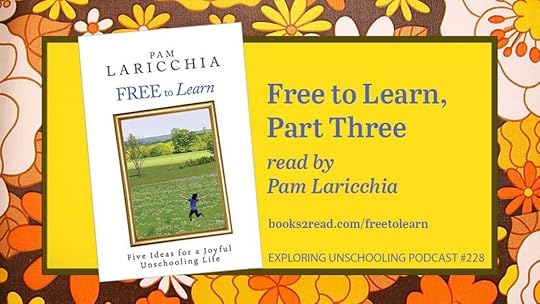
This week, I’m sharing the third and final part of the audiobook recording of my book, Free to Learn: Five Ideas for a Joyful Unschooling Life. This episode dives into the fourth and fifth ideas: instead of ‘no’ and living together.
If you haven’t read it yet, this is an opportunity to learn more about the paradigm-changing ideas that I found to be truly fundamental on my unschooling journey.
And if you have read it, I think it’ll still be wonderful to revisit. You’re in a different place on your unschooling journey now. You’ve peeled back some layers and have fresh eyes and new experiences to bring to it. New things will likely jump out and connect for you; things that passed by unnoticed before.
Free to Learn Description
Humans are born to learn. So why are we so determined to get in our children’s way?
Leaving the traditional education system behind is definitely unconventional and sometimes scary, but it enables us to preserve our children’s curiosity, creativity, and enthusiasm for learning. And that means more learning, not less.
With more than a dozen years of unschooling experience, Pam Laricchia explains the five paradigm-shifting ideas about learning and living that freed her family from the school system’s compulsory schedule and typical teaching methods. Her practical examples and stories may make all the difference in your life and the life of your child.
In Free to Learn, you’ll discover:
Why you want to look for learning, not teachingHow to see the learning that is happening everywhere, all the timeHow judgement and shame short circuit learning, and what to do insteadHow saying yes more encourages our children’s learning and cultivates their confidenceHow to give your children a voice in your family, and much, much more!
Through its concise, easy-to-understand language, Free to Learn explores the depth and potential of unschooling and how it can strengthen your family’s learning and relationships.
Links to Purchase the Book
Free to Learn: Five Ideas for a Joyfully Unschooling Life
Libre d’apprendre: Cinq idées pour vivre le unschooling dans la joie (French, translated by Malika Kergoat and Édith Chabot-Laflamme)
Libre para Aprender: Cinco Ideas para una Vida Unschooling Alegre (Spanish, translated by Roberto Lujano)
Szabadon Tanulni: Öt elv az örömteli élethez a szabadtanulással (Hungarian, translated by Marczin Orsolya)
Livre para Aprender: Cinco Ideias para uma Vida Unschooling Feliz (Portuguese, translated by Cipriana Leme)
May 13, 2020
EU227: Free to Learn, Part Two
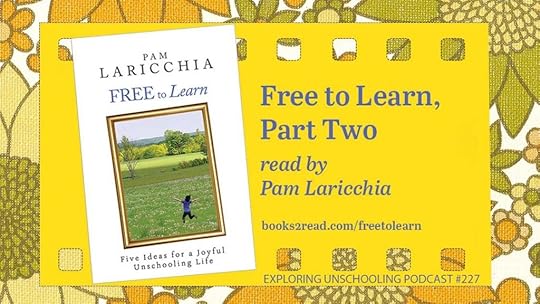
This week, I’m sharing part two of the audiobook recording of my book, Free to Learn: Five Ideas for a Joyful Unschooling Life. This episode dives into the second and third ideas: that learning is everywhere and that choices are key to learning.
If you haven’t read it yet, this is an opportunity to learn more about the paradigm-changing ideas that I found to be truly fundamental on my unschooling journey.
And if you have read it, I think it’ll still be wonderful to revisit. You’re in a different place on your unschooling journey now. You’ve peeled back some layers and have fresh eyes and new experiences to bring to it. New things will likely jump out and connect for you; things that passed by unnoticed before.
In the section ‘Embracing Passions,’ I mention the connection maps I drew back in 2006 that showed me that even seemingly narrow passions can be a window to the world. They’re on my website if you’d like to check them out: Joseph’s passion for video games and Lissy’s passion for Harry Potter.
And have you had a peek at the cover? It’s a photo of my son Michael, taken by my daughter Lissy. Once I had decided on the book title and it was time to think about the cover, I went looking through our pictures for an image that I felt represented the ideas of “free” and “joyful” and this one jumped out immediately. I’m so grateful they both agreed to let me use it!
Free to Learn Description
Humans are born to learn. So why are we so determined to get in our children’s way?
Leaving the traditional education system behind is definitely unconventional and sometimes scary, but it enables us to preserve our children’s curiosity, creativity, and enthusiasm for learning. And that means more learning, not less.
With more than a dozen years of unschooling experience, Pam Laricchia explains the five paradigm-shifting ideas about learning and living that freed her family from the school system’s compulsory schedule and typical teaching methods. Her practical examples and stories may make all the difference in your life and the life of your child.
In Free to Learn, you’ll discover:
Why you want to look for learning, not teachingHow to see the learning that is happening everywhere, all the timeHow judgement and shame short circuit learning, and what to do insteadHow saying yes more encourages our children’s learning and cultivates their confidenceHow to give your children a voice in your family, and much, much more!
Through its concise, easy-to-understand language, Free to Learn explores the depth and potential of unschooling and how it can strengthen your family’s learning and relationships.
Links to Purchase the Book
Free to Learn: Five Ideas for a Joyfully Unschooling Life
Libre d’apprendre: Cinq idées pour vivre le unschooling dans la joie (French, translated by Malika Kergoat and Édith Chabot-Laflamme)
Libre para Aprender: Cinco Ideas para una Vida Unschooling Alegre (Spanish, translated by Roberto Lujano)
Szabadon Tanulni: Öt elv az örömteli élethez a szabadtanulással (Hungarian, translated by Marczin Orsolya)
Livre para Aprender: Cinco Ideias para uma Vida Unschooling Feliz (Portuguese, translated by Cipriana Leme)
May 6, 2020
EU226: Free to Learn, Part One
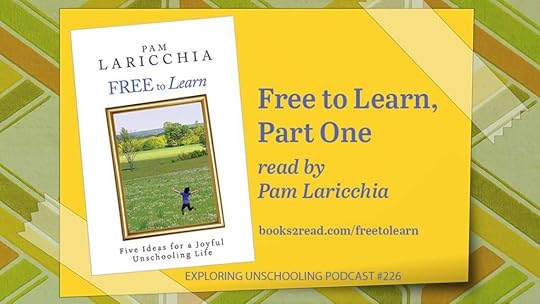
For the next while, I’m doing something a little different on the podcast.
With many people sheltering in place worldwide due to the coronavirus pandemic, it’s become increasingly challenging to arrange interviews. At first that seemed curious because people are connecting online even more so during these uncertain times. But as I thought more about the things I was seeing, it made so much sense.
Personal circumstances are changing so quickly right now that guests have been needing to reschedule calls, sometimes multiple times. And with the increased Internet traffic on our rural bandwidth, sometimes I’ve needed to reschedule calls to off hours. All that is added stress that I don’t want to put on people’s plates right now.
So, a couple of weeks ago I started contemplating what else I could do with the podcast during this time. I can rebroadcast some older episodes that many newer listeners likely haven’t yet discovered—there are some real gems in the backlist! And I can put together some more compilation episodes. It can be helpful to do a deep dive on a topic, hearing how different guests have answered similar questions. Another idea that bubbled up was my long-standing wish to record audiobook editions of my published books.
You might wonder why I’d share them for free on my podcast when the books—and eventually the audiobooks—are for sale as part of my livelihood, but I quickly realized that I truly don’t see it as either-or. I want to share my thoughts and ideas about how unschooling works. I want to share my experience with the personal journey we each take as parents as we strive to cultivate a thriving unschooling lifestyle in our families. Having the ideas out there for curious and interested parents to discover, through all sorts of channels, feels good to me.
And that’s what I’ve chosen to start with. This week, I’ve recorded and am sharing part one of the audiobook edition of my first book, Free to Learn: Five Ideas for a Joyful Unschooling Life.
First published in 2012, since then Free to Learn has been translated into four languages: French, Spanish, Portuguese, and Hungarian.
If you haven’t read it yet, this is an opportunity to learn more about the paradigm-changing ideas that I found to be truly fundamental on my unschooling journey.
And if you have read it, I think it’ll be a wonderful refresher. Because you are in a different place on your journey today. You’ve peeled back some layers and have fresh eyes and new experiences to bring to the table. New things will likely jump out and connect for you; things that passed by unnoticed before.
I’m excited to share!
Free to Learn Description
Humans are born to learn. So why are we so determined to get in our children’s way?
Leaving the traditional education system behind is definitely unconventional and sometimes scary, but it enables us to preserve our children’s curiosity, creativity, and enthusiasm for learning. And that means more learning, not less.
With more than a dozen years of unschooling experience, Pam Laricchia explains the five paradigm-shifting ideas about learning and living that freed her family from the school system’s compulsory schedule and typical teaching methods. Her practical examples and stories may make all the difference in your life and the life of your child.
In Free to Learn, you’ll discover:
Why you want to look for learning, not teachingHow to see the learning that is happening everywhere, all the timeHow judgement and shame short circuit learning, and what to do insteadHow saying yes more encourages our children’s learning and cultivates their confidenceHow to give your children a voice in your family, and much, much more!
Through its concise, easy-to-understand language, Free to Learn explores the depth and potential of unschooling and how it can strengthen your family’s learning and relationships.
Links to Purchase the Book
Free to Learn: Five Ideas for a Joyfully Unschooling Life
Libre d’apprendre: Cinq idées pour vivre le unschooling dans la joie (French, translated by Malika Kergoat and Édith Chabot-Laflamme)
Libre para Aprender: Cinco Ideas para una Vida Unschooling Alegre (Spanish, translated by Roberto Lujano)
Szabadon Tanulni: Öt elv az örömteli élethez a szabadtanulással (Hungarian, translated by Marczin Orsolya)
Livre para Aprender: Cinco Ideias para uma Vida Unschooling Feliz (Portuguese, translated by Cipriana Leme)
April 29, 2020
EU225: Unschooling Stories with Liz Brady

Liz Brady joins me this week to share some of her family’s unschooling stories. Liz and her husband live with their four boys in Western Australia. We dive into how she discovered unschooling, her parenting journey, and the gift of sharing her life with so many unique and dynamic personalities. The love and joy shines through in every story!
Questions for Liz
Can you share with us a bit about you and your family? What is everyone into right now?
How did you discover unschooling and what did your family’s move to unschooling look like?
What stands out for you about your journey from traditional parenting to cultivating more consensual and respectful relationships with your children?
With four children ages ten and under, can you share your experience with navigating everyone’s needs and wishes as you move through your days? How do you approach things when they are at odds?
I’d love to talk about the idea of “productivity.” It’s so pervasive, yet it’s definitely a valuable concept to explore as we’re deschooling, isn’t it?
What is your favourite thing about your unschooling lives right now?
Things mentioned in the episode
Join us in The Living Joyfully Network to connect with like-minded parents and explore candid conversations about living and learning through the lens of unschooling
Economics of Restricting TV Watching of Children by Pam Sorooshian (and I spoke with Pam about her article in our podcast conversation)
Find Liz on Instagram and Facebook
Episode Transcript
April 22, 2020
EU224: Deschooling with Fiona Munday
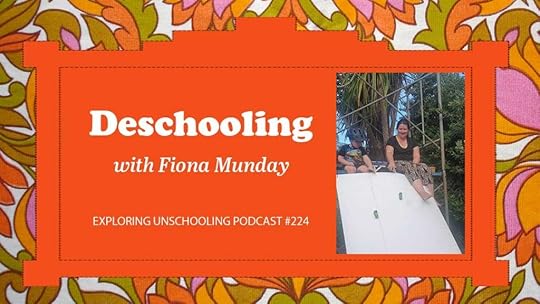
Fiona Munday joins me this week. Fiona and her husband live with their 4.5-year-old son in New Zealand and she dove into researching unschooling when her son was baby. We have fun exploring her journey and she shares some of the wonderful insights and a-ha moments she’s already experienced—including applying the same principles to the adults in the family!
Questions for Fiona
Can you share with us a bit about you and your family? What is everybody interested in right now?
How did you discover unschooling?
Your son isn’t quite yet school age, but you’ve been diving deep into learning about unschooling. What benefits have you seen from starting your unschooling journey early?
What have you found to be the most challenging aspect of deschooling so far? And what’s been your experience as you work through it?
What has surprised you most about your journey so far?
What is your favourite thing about the flow of your days right now?
Things mentioned in the episode
The Axel Show – one of Ollie’s favorites and one that helped Fiona too!
Follow Fiona on Instagram here
Episode Transcript

